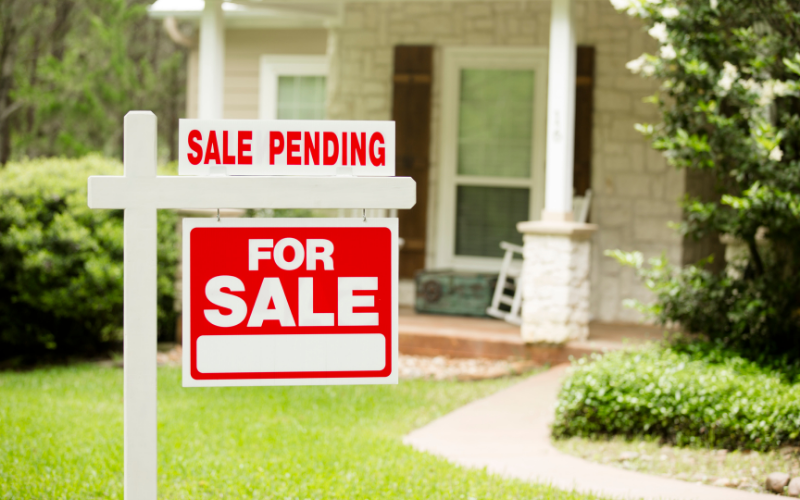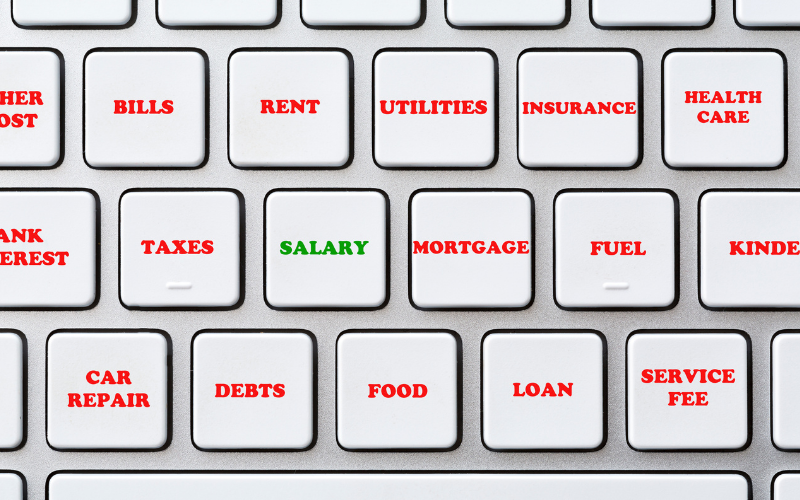 As interest rates fluctuate, you might think about refinancing your mortgage. This is the cost of taking out a new home loan to replace the one you currently have. If you get a significantly lower interest rate, you could save tens of thousands of dollars over the life of the mortgage. On the other hand, you need to think about potential expenses you might incur during the refinancing process. Because you are taking out another home loan, you may need to pay closing costs a second time. What are some of the most common expenses you might have to pay?
As interest rates fluctuate, you might think about refinancing your mortgage. This is the cost of taking out a new home loan to replace the one you currently have. If you get a significantly lower interest rate, you could save tens of thousands of dollars over the life of the mortgage. On the other hand, you need to think about potential expenses you might incur during the refinancing process. Because you are taking out another home loan, you may need to pay closing costs a second time. What are some of the most common expenses you might have to pay?
The Mortgage Application Fee
One of the most common expenses is the mortgage application fee. Essentially, this is a fee that the lender will charge for opening up a new application on your behalf. The fee can vary significantly depending on the lender you use, but it is usually a few hundred dollars.
A Home Appraisal
When you took out your first mortgage, the lender probably required you to get your home appraised. The lender wants to make sure they are not financing a home that is not worth as much as its price tag. You still need to get your home appraised again if you decide to refinance your mortgage. The lender wants to make sure they understand how much the house is worth before they give you a loan for it. A typical home appraisal is also a few hundred dollars.
Title Search And Title Insurance
The lender might also require a title search and title insurance. This is important for making sure you protect yourself in the event someone else still holds the title to your house. A title search is usually a few hundred dollars, and title insurance could be $1,000 or more.
Loan Origination Fee
Most lenders charge a loan origination fee that is approximately one percent of the value of the loan. Again, this can vary from lender to lender as well.
Understand These Fees
There are lots of potential fees that a lender might tack on. Fortunately, you do not necessarily need to pay for all of them. Always ask the lender whether they might be willing to waive some of these fees to make the cost less expensive.
 The search for a house can be stressful and filled with lots of jargon that can make it difficult for someone new to the real estate world to figure out what is going on. One of the most common terms that people might see on the MLS is “sale pending.” What does this mean, and how should people interpret this?
The search for a house can be stressful and filled with lots of jargon that can make it difficult for someone new to the real estate world to figure out what is going on. One of the most common terms that people might see on the MLS is “sale pending.” What does this mean, and how should people interpret this? There are many Millennials who are looking for a home, and many of them are getting ready to trade up for more space. If you think you need more space, you may have more buying power than you realize. The coronavirus pandemic has led to a lot of changes, and you might be able to use the equity in your home to purchase a bigger house with more features.
There are many Millennials who are looking for a home, and many of them are getting ready to trade up for more space. If you think you need more space, you may have more buying power than you realize. The coronavirus pandemic has led to a lot of changes, and you might be able to use the equity in your home to purchase a bigger house with more features. Many would-be homebuyers are now considering buying a condominium instead. Condominiums may be a good option for first-time buyers who are experiencing obstacles when searching for properties that meet their budgets and other criteria. Here’s why:
Many would-be homebuyers are now considering buying a condominium instead. Condominiums may be a good option for first-time buyers who are experiencing obstacles when searching for properties that meet their budgets and other criteria. Here’s why: Many people believe that investing in real estate is something reserved only for the super-wealthy. In reality, this is not the case. Investing in real estate is a smart idea because property can generate a consistent cash stream while providing significant capital appreciation combined with tax breaks. There are multiple ways to invest in real estate, and no single path is better than the others.
Many people believe that investing in real estate is something reserved only for the super-wealthy. In reality, this is not the case. Investing in real estate is a smart idea because property can generate a consistent cash stream while providing significant capital appreciation combined with tax breaks. There are multiple ways to invest in real estate, and no single path is better than the others. Even though a lot of people have two incomes they can use to purchase a house (theirs and their partner’s), this is not necessarily required. There are lots of people who want to take advantage of current interest rates to purchase a house, and some people are trying to do it on their own. Even though it can be a challenge to buy a house with only one income, it is certainly not impossible. There are several tips that can make it easier for everyone to afford a house with just a single income.
Even though a lot of people have two incomes they can use to purchase a house (theirs and their partner’s), this is not necessarily required. There are lots of people who want to take advantage of current interest rates to purchase a house, and some people are trying to do it on their own. Even though it can be a challenge to buy a house with only one income, it is certainly not impossible. There are several tips that can make it easier for everyone to afford a house with just a single income.